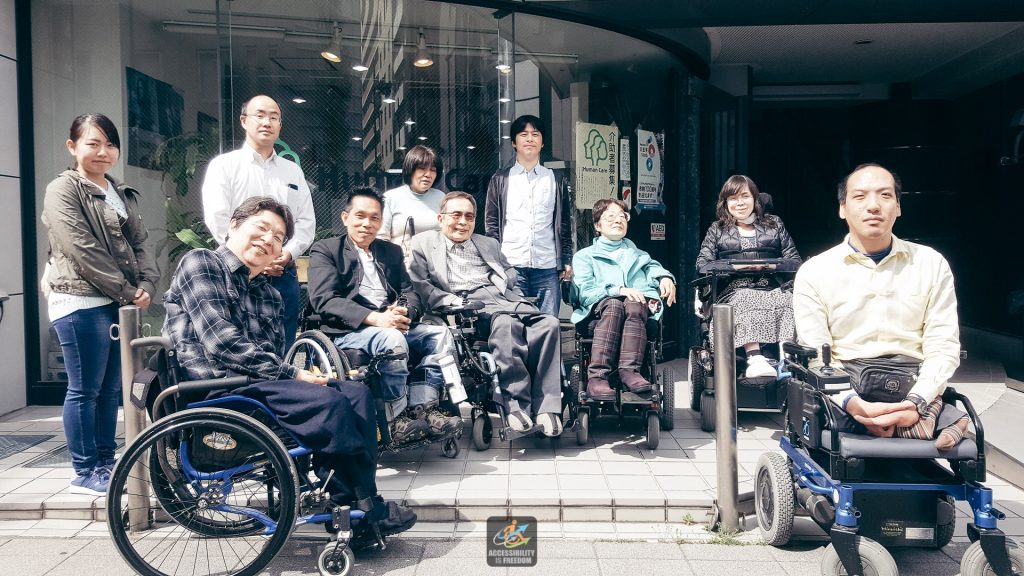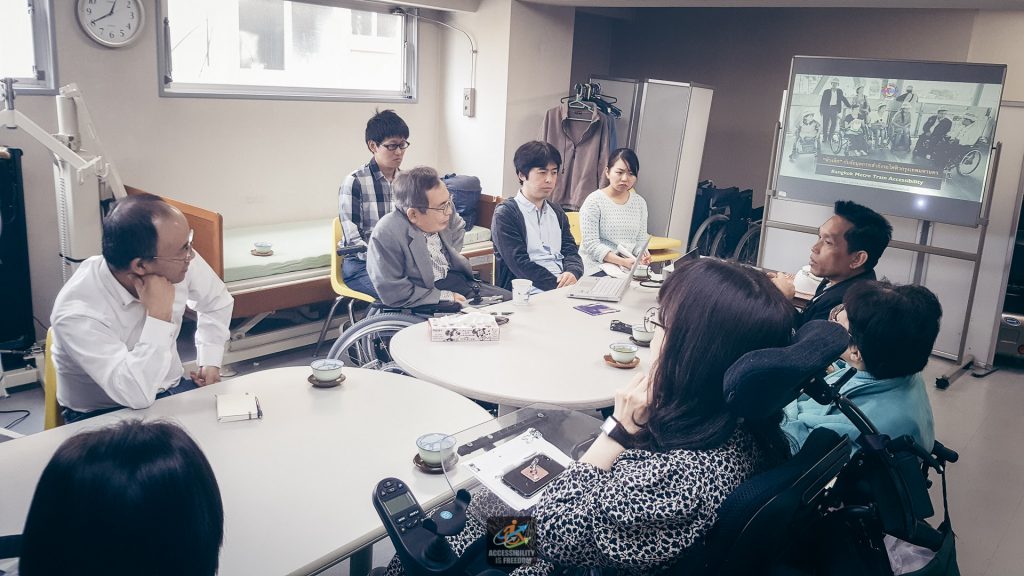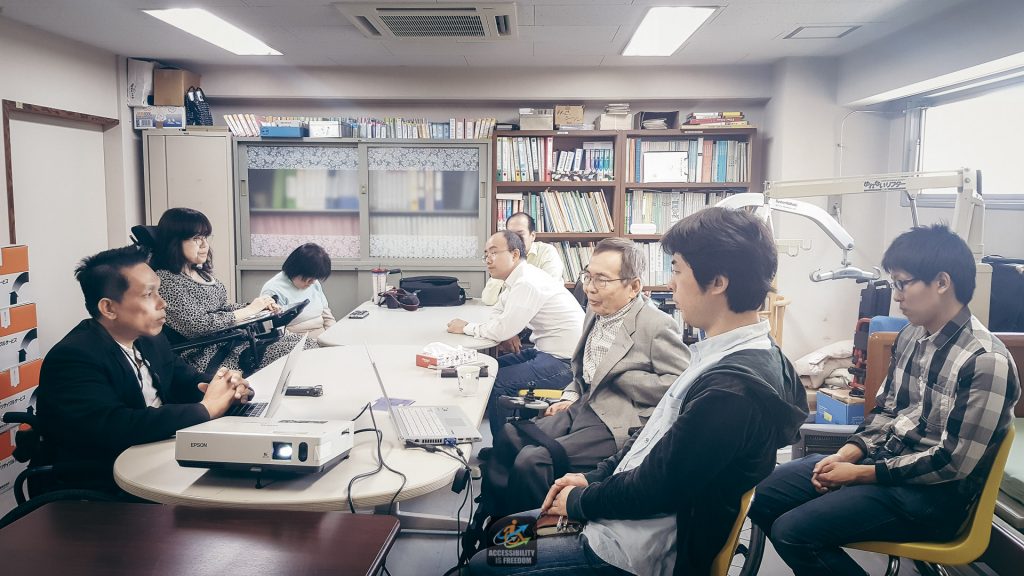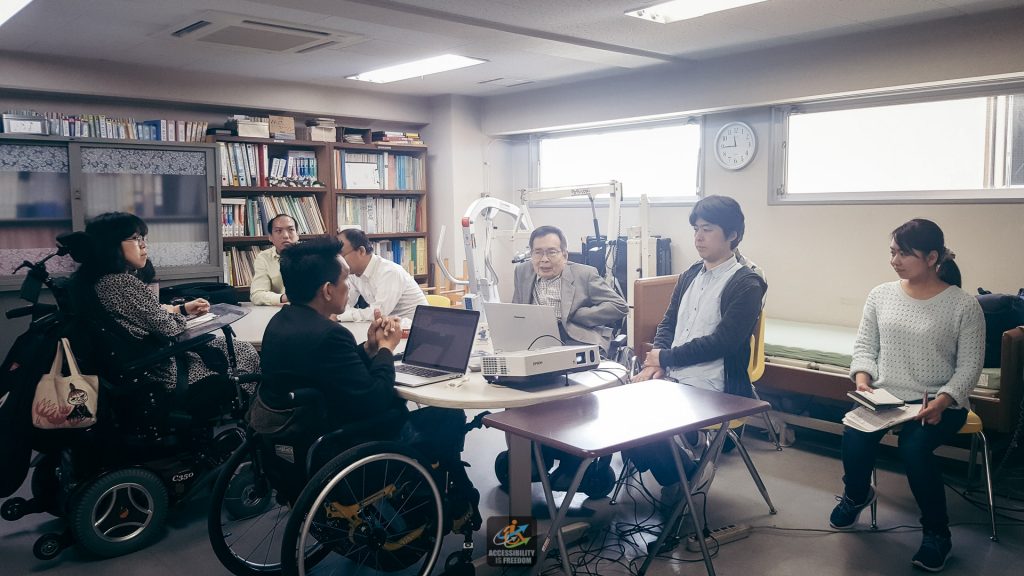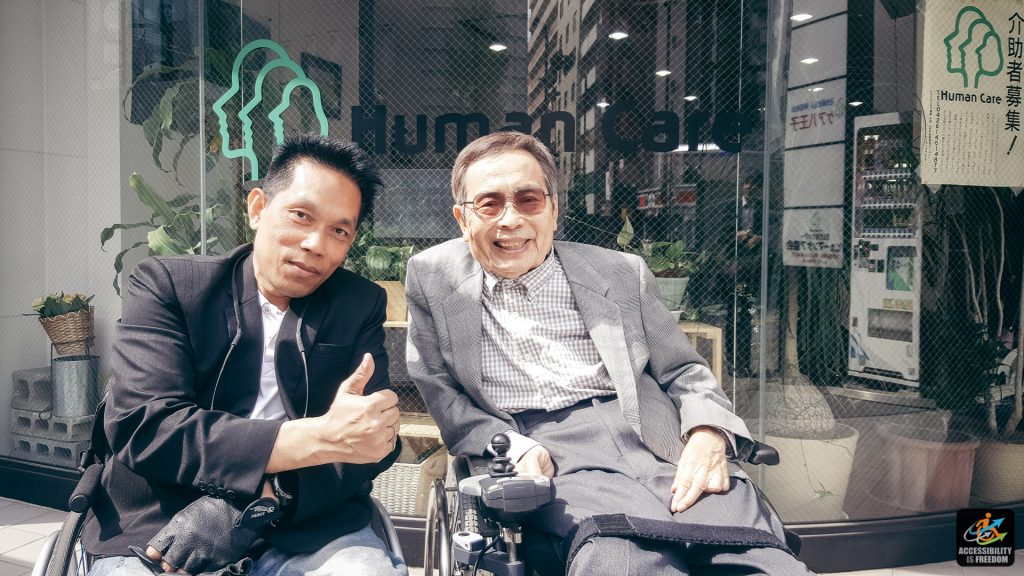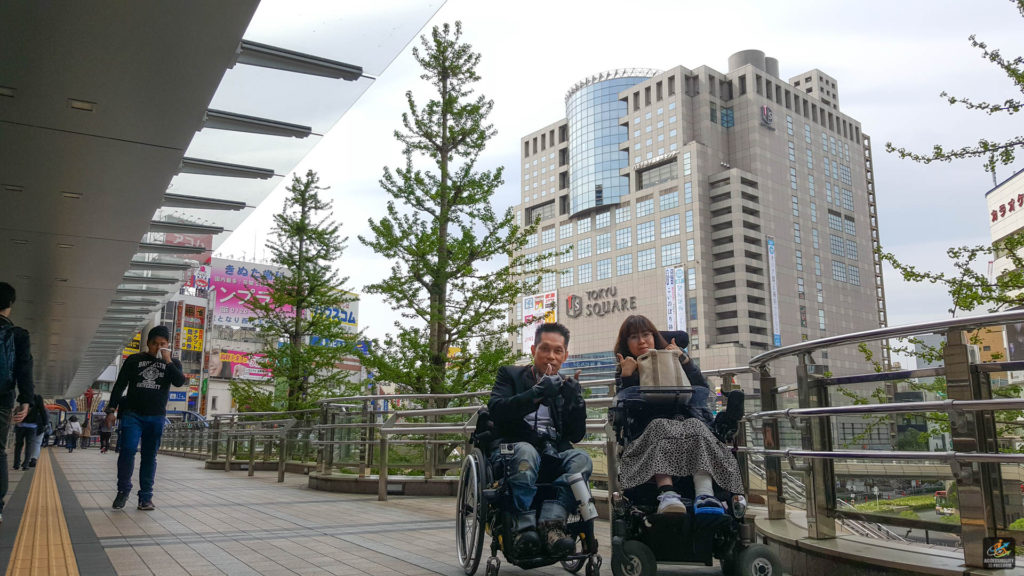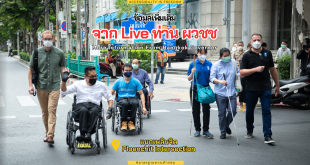Japan, a global economic powerhouse, leads in many industries—electronics, robotics, automobile manufacturing, and transportation infrastructure. Its accessibility standards are among the highest in the world. There is no denying that Japan is at the forefront.I have long been aware of this, which is why I chose to visit Japan—to experience and explore these advancements firsthand.
In Thailand, we have several prominent leaders in the disability rights movement. Going back to my younger days, when I was working behind the scenes, I had the opportunity to collaborate with and learn from figures such as Khun Narong Patibatiskit, Khun Torpong Kulkachit, and Khun Suporntum Mongkolsawat.
I mention these names because my second trip to Japan had a specific objective: to meet people who were more than just regular service users. Thanks to recommendations from Khun Saowalak and Khun Sawang, I was introduced to Shoji-san.
“Shoji-san has been supporting Thailand and other countries since P’Torpong’s era.” The information from my friend, Khun Suporntum.
Before my trip, we exchanged letters and introductions. My visit to DPI-Japan was made possible through Shoji-san’s kindness in connecting me with them. I had high expectations for this trip, and Shoji-san graciously gave me an entire day of his time.
From my accommodation, the journey took about two hours. We traveled during rush hour and got lost along the way, which nearly doubled our travel time!
Shoji-san previously managed DPI-Japan and now leads Human Care (https://www.humancare1986.jp). Upon arrival, he warmly introduced me to his team, who were incredibly kind and welcoming. We then proceeded with a meeting.
Shoji-san shared the history of Japan’s disability rights movement, focusing on accessibility and fundamental rights. He recounted events dating back to 1999, including a video showing Japanese people with disabilities staging protests at Shinjuku Station, which made headlines nationwide.
Today, Japan has achieved an extraordinary level of accessibility—arguably the best in the world. Yet, Shoji-san emphasized that “there is still more work to be done.” The government is continuously improving laws to ensure greater accessibility.
I also had the opportunity to present our movement in Thailand, giving them a brief overview of their work.
Key Insights from Shoji-san & DPI-Japan:
1. Nowadays, Japan no longer needs to protest. The law is revised when necessary, and everyone complies.
2. Japan has phased out platform lifts (stair lifts). Only a few remain in older stations. In contrast, South Korea still uses them without proper maintenance, leading to at least three fatal accidents so far.
3. Future development plans for accessibility.
For me, these insights were incredibly valuable—especially hearing them directly from Shoji-san.
During lunch, he treated me to a meal, and in the afternoon, his team took me on a guided tour to explore additional accessibility features in Japan. It was a truly fulfilling experience.
Before we parted, he left me with a powerful message: “We work for future generations. Please help people with disabilities.”
Looking at the broader picture, the challenges surrounding accessibility in Japan and Thailand are similar. However, Japan stands out because:
– If the law is inadequate, they change it, and people follow it. Simple as that.
– In Thailand, our laws are already quite good, but enforcement and compliance remain issues.
Before I left, Mrs. Nakanishi, Shoji-san’s wife, commented, “Traveling to Japan with your own budget must be very expensive.” I nodded and replied, “Yes, it is. But I do my best…”
I returned to Thailand feeling fulfilled. Many friends in Thailand had asked me to send their regards to Shoji-san, so I became a sort of Santa Claus—bringing gifts and goodwill all the way to Japan.
I firmly believe that stronger collaboration and connections will gradually develop between us in the future.
Until we meet again, Shoji-san—the regent…
/Saba
Accessibility Is Freedom
Bangkok 08/05/2017 – 3:47 PM
 Accessibility Is Freedom เข้าถึงและเท่าเทียม | Accessible and Equal
Accessibility Is Freedom เข้าถึงและเท่าเทียม | Accessible and Equal
